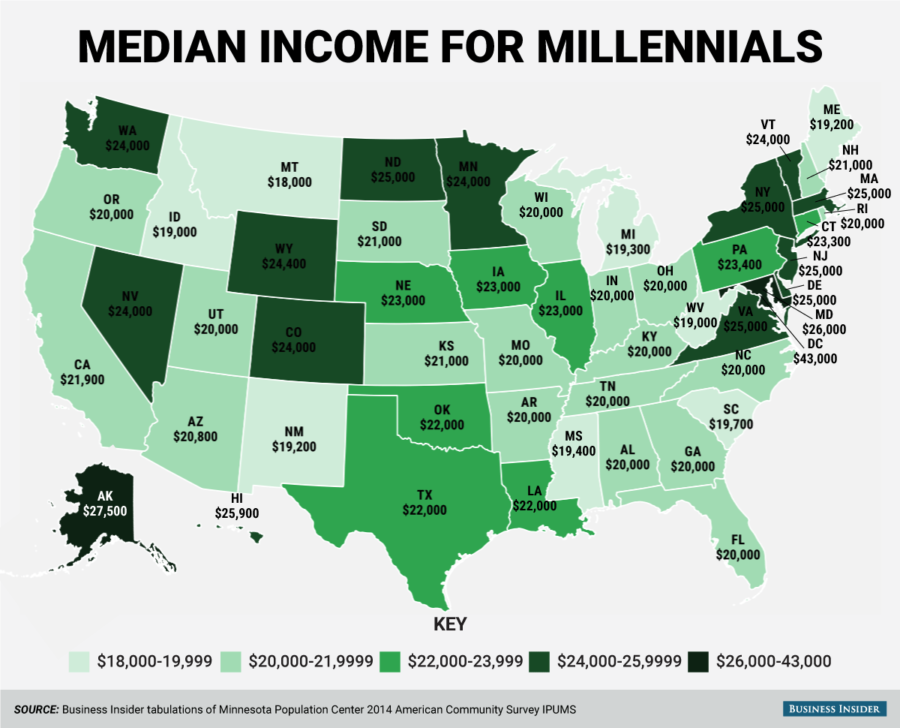
Let’s be honest, millennials don’t enjoy working that much (forgive me for the generalization). We would rather be on the beach earning passive income from a side project. One could attribute that to laziness and entitlement, but those are generalizations that prevents most people from understanding exactly what we’re about and how we collectively perceive work.
As millennials, some of us have witnessed our parents and grandparents work tirelessly in jobs they hated or weren’t passionate about. We’re talking 10 to 20 years of doing work that brought very little satisfaction, which ultimately contributes to stress and other subsequent health problems. For millennials, this is scary to us, and it’s something that most of us have tried to avoid, hence the endless amount of degrees and student loan debt.
Regardless of whether or not we enjoy jobs, most of us will find ourselves in them anyway (because entrepreneurship isn’t for everyone and we need money). So, as an employer, the big question is how do you keep us around? How do you prevent us from job-hopping every five months? How do you tap into the great reservoir of millennial trendiness, creativity, and ambition? Here’s how to do it.
Instill a culture of autonomy
I’m currently reading Creativity, Inc. by Ed Catmull (a highly recommended read), and in the first chapter, Catmull highlights one of the most important drivers of his success throughout his college career, which ultimately leads to him founding Pixar. It’s a long excerpt, but it hits the nail on the head. He states,
“The leaders of my department understood that to create a fertile laboratory, they had to assemble different kinds of thinkers and then encourage their autonomy. They had to offer feedback when needed but also had to be willing to stand back and give us room. I felt instinctively that this kind of environment was rare and worth reaching for. I knew that the most valuable thing I was taking away from the [University of Utah] was the model my teachers had provided for how to lead and inspire other creative thinkers.”
This same idea applies to managing millennials in the workplace. In order to inspire and empower millennials to contribute to your company’s success and reach our full potential, you have to instill a culture of autonomy. Build a culture where employees are encouraged to start and lead their own projects, with moderate oversight. Provide constructive feedback, but be willing to step on the sidelines and watch your team infuse their raw creativity into their projects. You’ll then start to see your employees become more enthusiastic about the work they do every day and more motivated to achieve results for your company.
Encourage work-life balance
Millennials are considered to be entrepreneurial, which means that even if we’re not starting our own companies, we’re working on side projects or doing something to try and live out our life’s purpose and pursue our deep passions. As a company, make an effort to recognize your employee’s personal passions and ambitions and offer services that will support them personally and professionally.
As a company, make an effort to recognize your employee’s personal passions and ambitions, and offer services that will support them as a personally and professionally.
For example, travel is a hot trend among millennials (Amalfi Coast selfie, anyone?). As a company, you can (and should) provide unlimited vacation time to your employees. If you’re feeling really generous and have the revenue and cash to support it, you can even provide an annual travel stipend. This is just one example of playing into the hearts and personal desires of millennials. Promoting work-life balance also comes in the form of managing workload to avoid over-worked employees and educating on things like financial and family planning.
As a company, don’t make it all about you. Make sure your employees are in optimal shape in all aspects of their lives.
Help us grow professionally
One reason why millennials job hop is because we often feel stuck and stagnant. A job not being fulfilling enough is one thing. But it’s another thing to work for an employer who wants to suck the life out of you while showing no interest in your professional development. Probably the easiest thing you can do for millennials is help them grow professionally by providing opportunities such as networking opportunities, conference stipends, public speaking gigs, and initiatives to help us explore other areas of interest (e.g. a marketer learning how to code).
One reason why millennials job hop is because we often feel stuck and stagnant.
Understandably, there’s a fear that your employees will spend more time on themselves and not your company. But look at it this way: you can play a significant role in a person’s professional development. Even if you end up losing an employee you tried to help grow, your reputation as an employer will surely improve as word gets out about your culture and initiatives. No matter how you slice it, it’s in your best interest to make sure your employees are growing professionally.
Pay us well
This doesn’t need much of an explanation. We all want to be paid well for our labor, but millennials have a unique challenge. According to Citizens Bank, millennials, defined as those between the ages of 18 and 35, have an average student debt of $41,286.60. To make matters worse, income among millennials is depressing (no pun intended, refer to the chart below). Simply put, millennials need to be paid a living wage (which varies by city) in order for us to stay motivated. When it comes to compensation, don’t tighten your wallet too much. Well-paid employees are happier employees, at least up to a certain point.
*Note: The youngest millennials are college-aged and may only be working part-time, which may skew the median downwards.
At the end of the day, every person has their individual reasons for leaving a company. But you can reduce employee churn and build a favorable workplace by promoting autonomy, encouraging work-life balance, investing in your employees’ professional development, and, of course, paying them well (if they deserve it). Follow the four tenets above, and you’ll be well on your way to becoming the perfect company for millennials. Free lunch helps, too.
This post originally appeared on Donte Ledbetter’s blog.
Read more:
